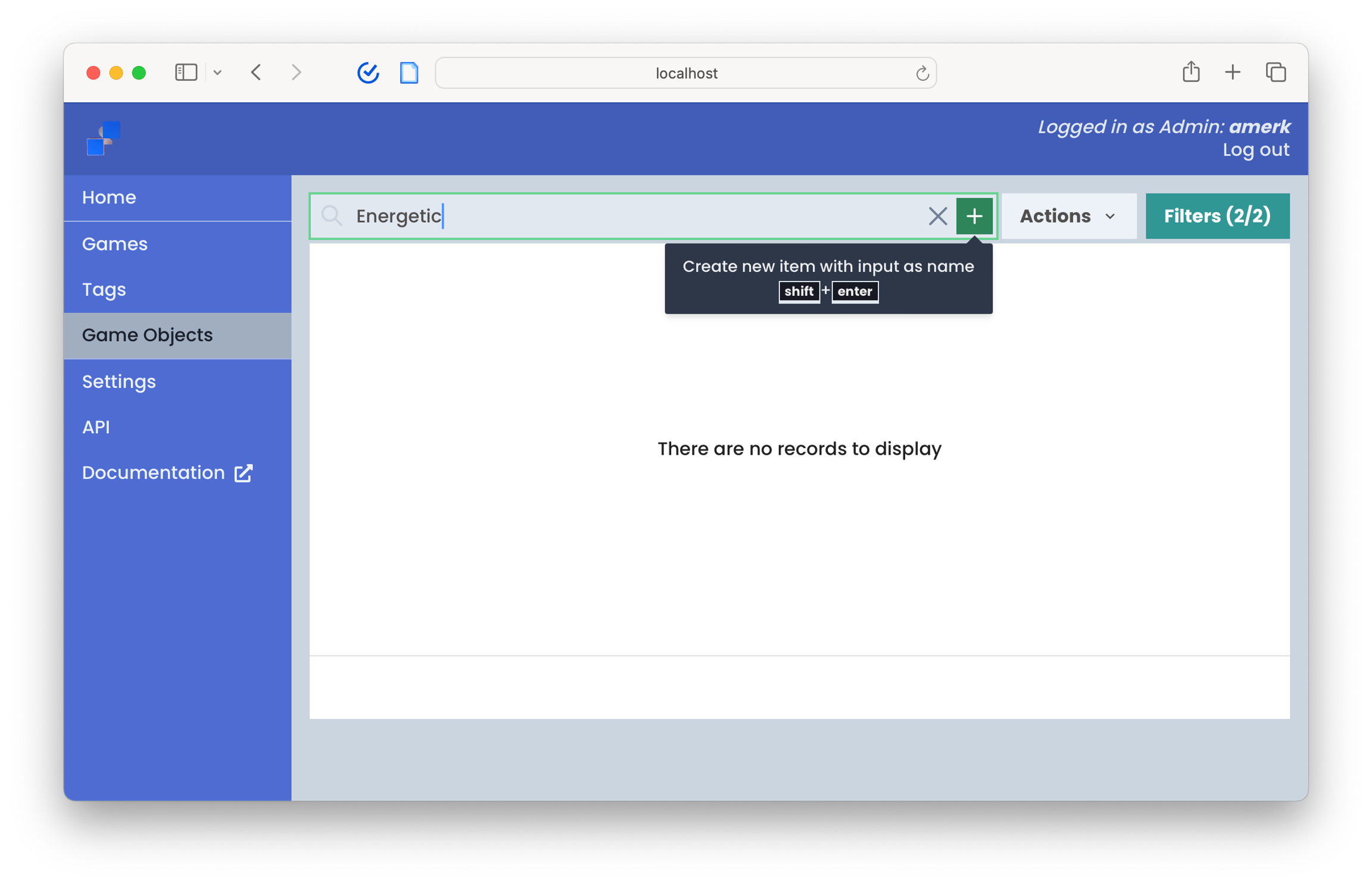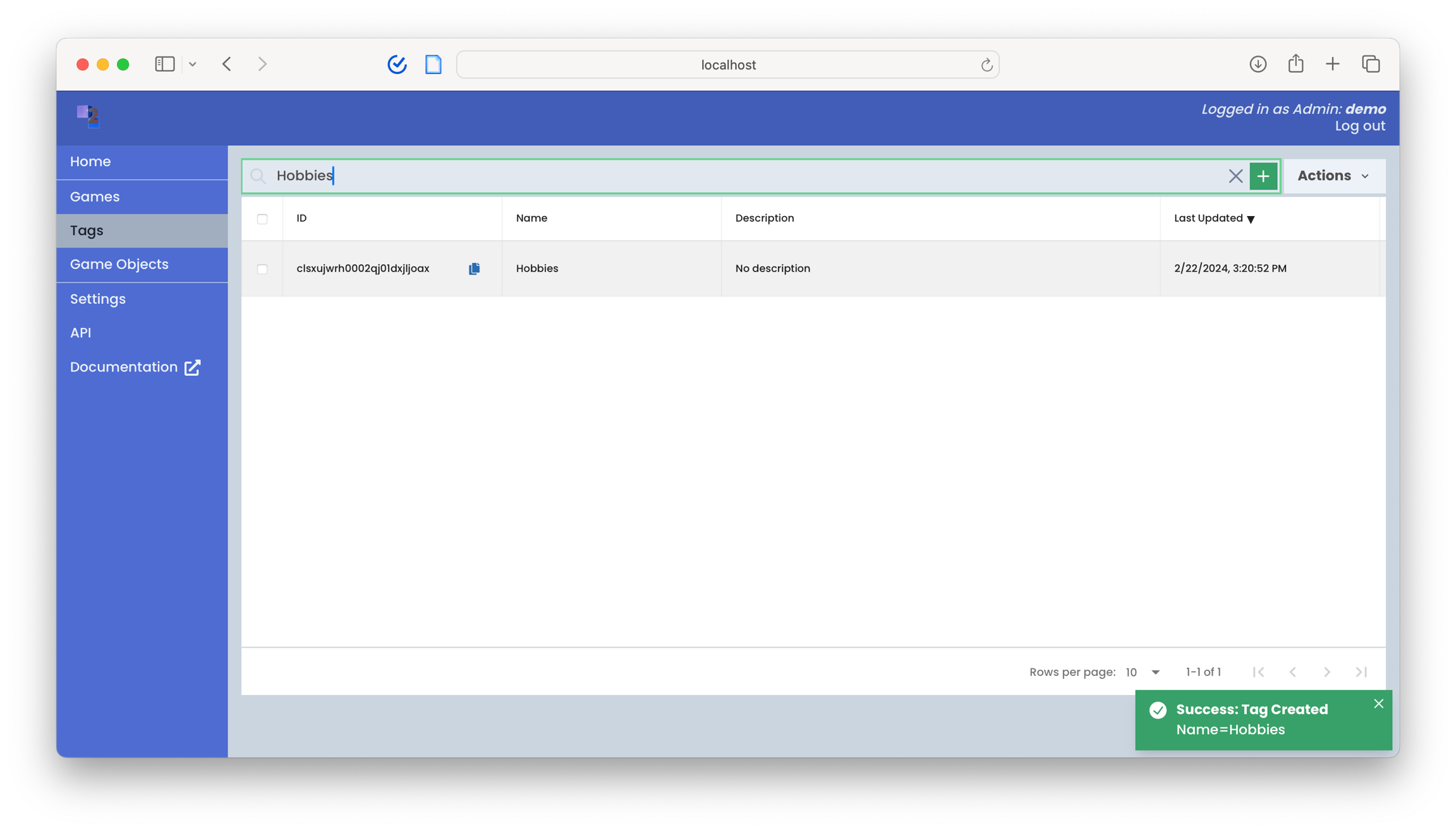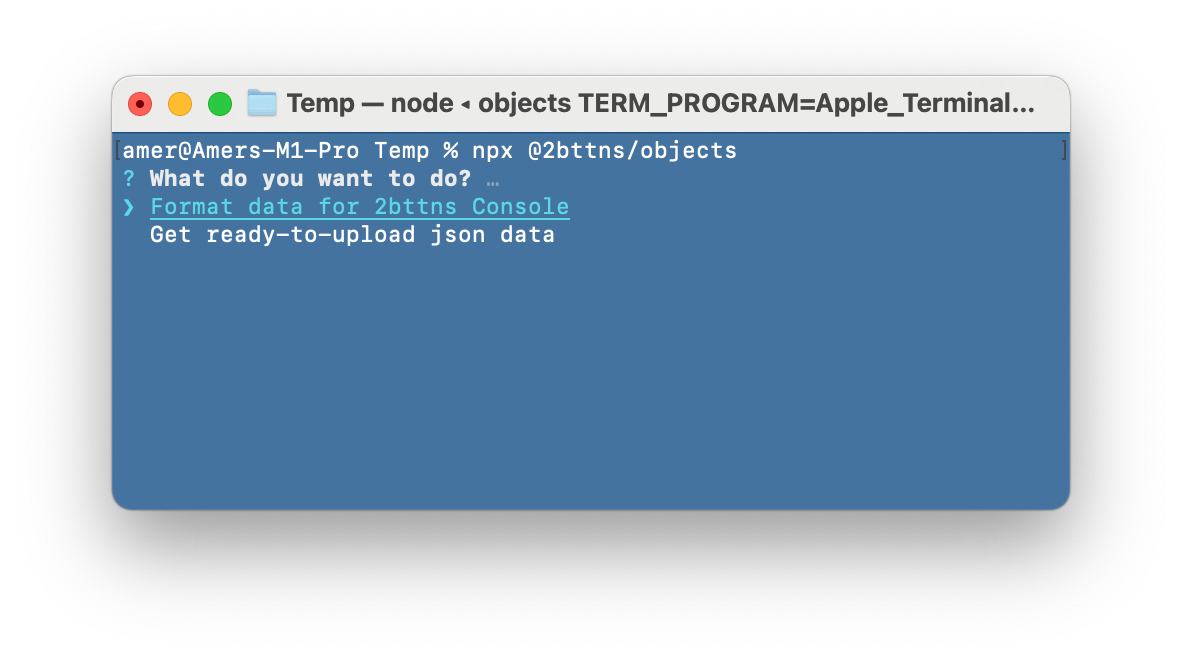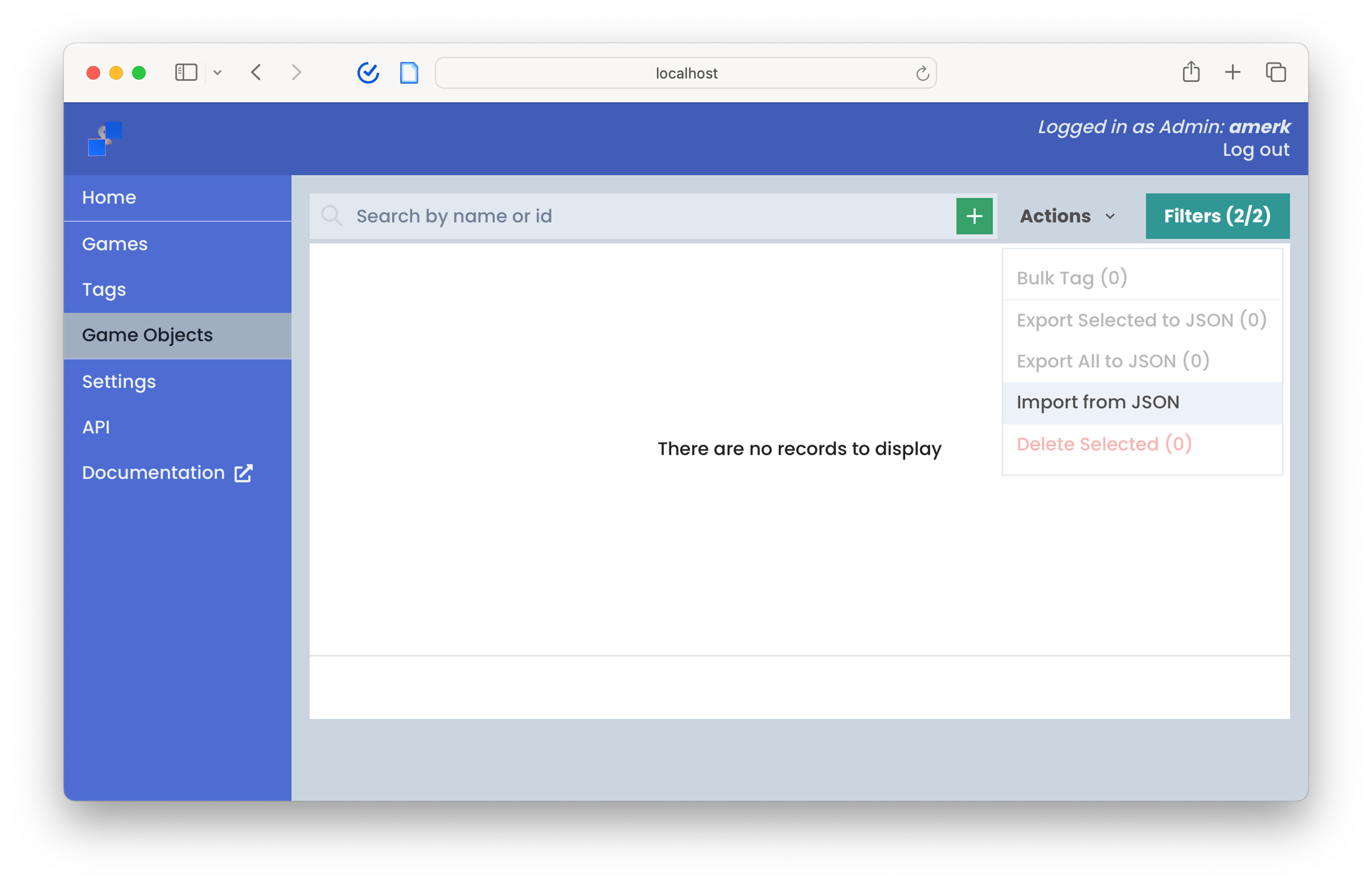Manage game data
Create new Game Objects

Group objects into Tags

shift + enterInput tagged objects into game
Importing data
Prepare your records
Format your JSON
How 2bttns Helps
Using the formatter

Key
Value
Definition
How to import
Import with Console

Import with API
Import 2bttns data from a JSON file.
Authorizations
AuthorizationstringRequired
Bearer authentication header of the form Bearer <token>.
Body
jsonBase64stringRequired
Base64 encoded JSON file to import
allOrNothingbooleanOptionalDefault:
If true, the import will fail if any part of it fails.
If false, the import will continue even if some parts fail.
falsegenerateNewIdsbooleanOptionalDefault:
Generate new IDs for imported data and remap all references to them, instead of using existing IDs.
This may result in duplicate entries with similar content but different IDs.
falseResponses
200
Successful response
application/json
default
Error response
application/json
post
/import-dataLast updated